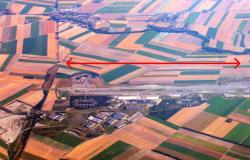
With nearly 4,000 new cases per year in addition to the 120,000 people already diagnosed, France is characterized by a high incidence of Crohn’s disease. Mainly affecting a young population, aged between 15 and 25 years, it is characterized by inflammation of the wall of the digestive tract, due to dysregulation of the intestinal immune system. According to the National Institute of Health and Medical Research (Inserm), this uncontrolled inflammation is “responsible for tissue damage and chronicity of the disease.“For several years, research has made progress and has made it possible to offer numerous therapeutic tools depending on the severity of the symptoms.
Interferon lambda would prevent healing
Among the solutions available, specific anti-inflammatories, such as corticosteroids indicated as first-line treatment. In more severe cases, biotherapies are now available. “This new drug class has revolutionized the management of chronic inflammatory bowel diseases or IBD, underlines the Afa Crohn RCH France association. In Crohn’s disease, biotherapies, in particular anti-TNF monoclonal antibodies, make it possible to block the inflammation factors involved in the disease.“
Among other avenues of research to treat these inflammatory pathologies, the microbiota or even fecal transplantation have been mentioned. A new step has been taken by researchers from the Marseille-Luminy Immunology Center. Head of the team dedicated to innate immunity at the mucosal level, Achille Broggi has just revealed the role of lambda interferons in chronic inflammatory bowel diseases (IBD). “We wanted to understand how the immune system regulates the healing of mucous membranes during inflammatory bowel diseases.“, confirms the latter. For some time, his work has focused on this molecule. “The interferon lambda protein is very particular. It has a protective effect because its role is to fight viruses by killing infected cells. And at the same time, it has a negative side, because we have noticed that in the presence of IBD, it is produced in excess and destroys intestinal stem cells, thus preventing the regeneration of the epithelial layer.“Clearly, interferon lambda prevents the healing of wounds to the intestinal mucosa caused by excessive inflammation caused by the disease.
Health





